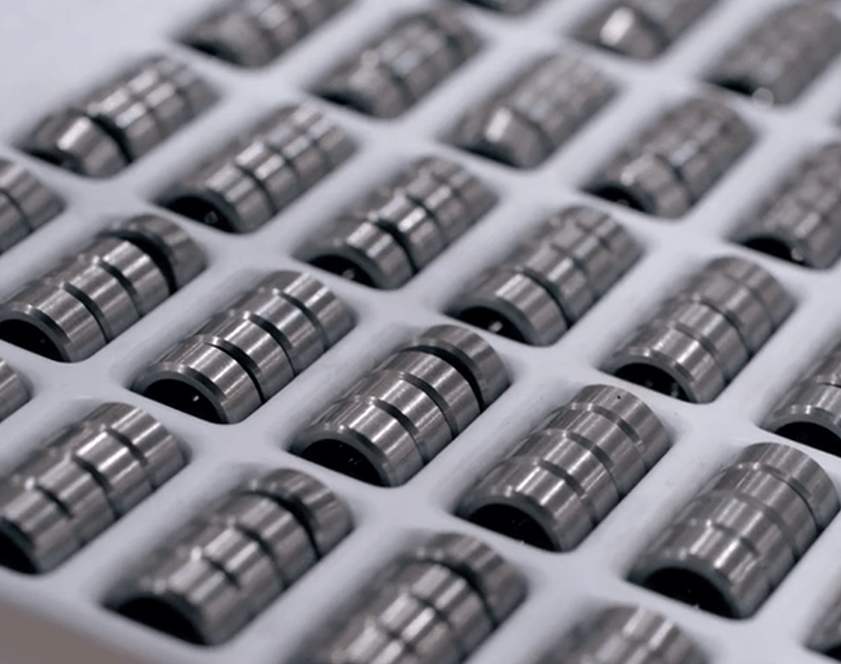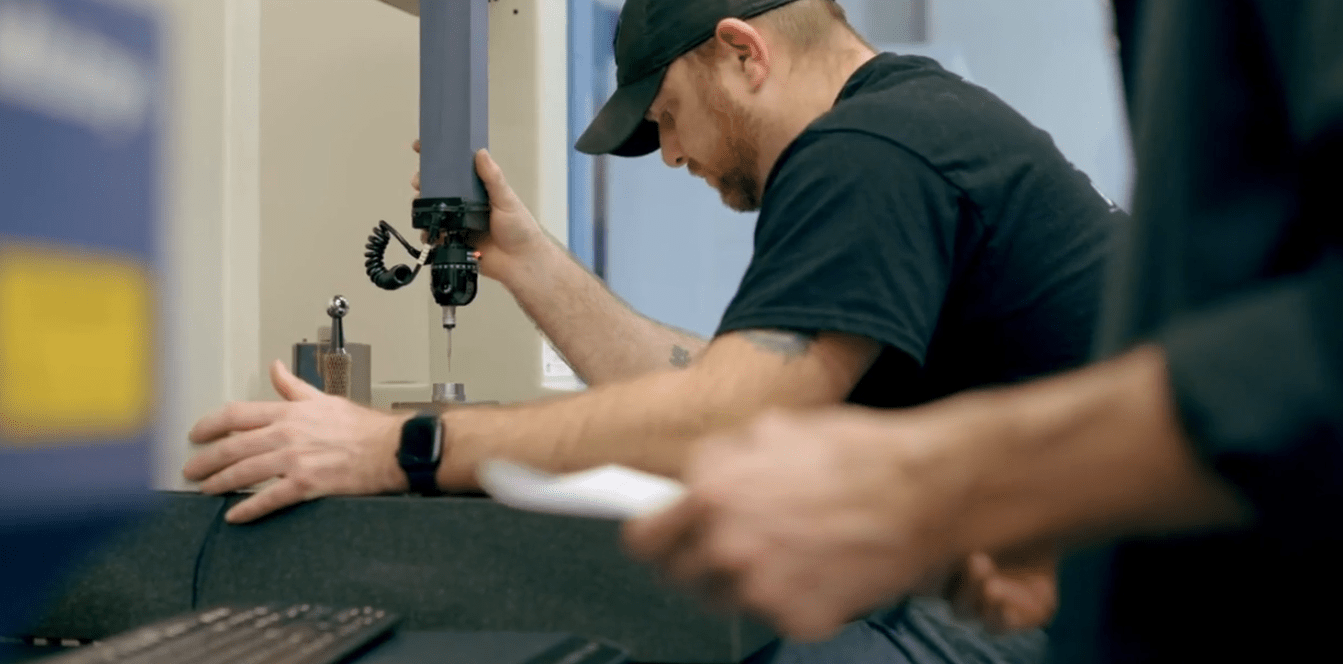How to Build Supply Chain Resilience for High-Complexity Parts
How to Build Supply Chain Resilience for High-Complexity Parts
Strategies to Prevent Disruption in 2025 and Beyond
You’ve seen it in the news and you’ve seen it in your business: global supply chains are facing unique challenges in 2025, and many sourcing professionals are grappling with how to handle them.
Timelines are delayed. Costs are increasing. When it comes to component sourcing, every shift in the global economy has an impact on your bottom line, especially if your supply chain is unprepared.
At Firstar, we’ve made creating solutions to complex problems a core part of our business. In this guide, we’ll explore the manufacturing impacts of geopolitical risks, strategies for building a stronger supply chain, and how Firstar can help.
Impacts of Geopolitical Risks on Global Supply Chains
What were once infrequent but manageable disruptions to the supply chain have become the new normal for manufacturers of high-complexity parts.
Have you experienced any of these issues?
- Extended lead times are causing delays in production schedules.
- Tariffs and associated shipping and manufacturing costs are increasing the pressure to reshore critical parts.
- Labor shortages are slowing in-house production and new product ramp-up.
- Part complexity is increasing faster than supplier engineering capabilities.
The impacts of these roadblocks are widespread, but existing solutions are often too expensive or complicated. Instead of adding new vendors or services on top of your existing supply chain, start by re-evaluating your current vendors first.
Your Supply Chain Resilience Assessment
A strong supply chain is your first line of defense against global disruptions. Think of it as the moat that prevents issues like production delays, poor quality control, and increased costs.
When that moat is deep—with onshore production capabilities, operational efficiency, and reliable partners—you’re more prepared to weather surprise attacks. When it’s shallow, you’ll be forced to make compromises that weaken your business.
How do you know if your supply chain is up to the task? Ask yourself the following questions.
Onshore Production
- Do you have qualified domestic partners who can scale up or down quickly?
- Can you produce critical components domestically if overseas suppliers fail?
Operational Efficiency
- Do your partners offer flexibility for smaller, more frequent production runs?
- Can you shift production quickly to respond to market or customer changes?
Reliable Partnerships
- Do your suppliers offer design for manufacturability or other engineering collaboration services?
- Do your suppliers practice proactive communication to prevent delays and surprises?
If you answered no to two or more of these questions, consider reevaluating your supplier list.
Contract Manufacturing as a Solution for Supply Chain Disruption
A partnership with a contract manufacturer is one way to strengthen your supply chain for high-complexity components without compromising quality, efficiency, or your bottom line. Let’s explore potential benefits.
Onshore Reliability and Risk Management
As manufacturers navigate disruptions in international trade and shipping, onshore production capabilities will be essential to production timelines.
Contract manufacturing offers onshore reliability and the convenience that comes with it, including good communication, fast lead times, and reduced geopolitical risk.
Engineering Collaboration That Eliminates Delays
In-house engineering teams at contract manufacturers can develop custom solutions that enable faster and more efficient production.
Their teams are trained to adapt processes to shifting business needs — whether you’re launching a new product or making improvements to an existing one. Additionally, if you find a shop that prioritizes flexibility, you’ll experience lower overhead costs and a quicker turnaround.
Agile Small-Batch Manufacturing for Market Responsiveness
Contract manufacturers can work in small-batch volumes, allowing you to pivot quickly, match increased or reduced demand, and stay on budget. Without an astronomical order minimum to meet, you can produce according to your business needs, not those of your supplier.
Inventory Flexibility Supporting Just-in-Time Operations
Alongside small-batch manufacturing, contract manufacturers offer just-in-time operations that enable inventory flexibility, reduce excess inventory, and minimize holding costs.
Case Study: Reducing Lead Times and Costs for Industrial Assembly Tools
At Firstar, we offer comprehensive CNC machining services and end-to-end manufacturing solutions that can streamline virtually any project.
When a manufacturing company specializing in industrial assembly tools faced extended lead times in their supply chain, we created a solution that not only met their needs but exceeded them.
The Challenge: Increased Lead Times and Inflexible Operations
Our customer’s existing supplier for a critical product had significantly extended their lead times up to 26 weeks and increased the price per unit.
Additionally, this supplier was not able to accommodate variations in smaller runs. This would have forced the company to buy much larger quantities than needed at a time, resulting in strained cash flow and operational inefficiencies.
The Solution: Custom Manufacturing and Machinery
The manufacturing company’s complex product required a customized approach. Firstar’s in-house engineering team conducted a comprehensive review of the customer’s requirements, analyzing the size, tolerance specifications, and usage rates of their product.
When they realized they didn’t have the necessary equipment on-site, Firstar adapted one of its existing CNC machines with custom parts to perform the precision gear cutting that the client required.
The Outcome: Reduced Lead Times and On-Hand Inventory
Firstar’s partnership-driven approach reduced lead times for our client by 80%. With smaller production batches and increased flexibility, the manufacturing company was also able to reduce on-hand inventory and costs.
While the impact was immediate, Firstar’s partnership will have a long-term effect on our manufacturing client’s operational efficiency.
Next Steps: Supply Chain Risk Management for Advanced Manufacturing
Implementing a strategy for supply chain resilience now will help mitigate the risk of being impacted by future global changes. Here’s how to get started.
Assess Your Current and Future Risk
Conduct a comprehensive supply chain risk assessment using the framework outlined above. Are your partners prepared to handle current and future disruptions?
Create a Back-Up Plan
Develop sourcing alternatives for your most vulnerable components. What critical parts would halt production if unavailable? How can you strengthen this link in your supply chain?
Work with Firstar
If your suppliers aren’t helping you move faster, they’re holding you back. At Firstar, we partner with forward-thinking operations teams to provide precision machining, engineering insight, and responsive support across the full lifecycle of your parts.
Let’s talk about your current vendor network and explore how Firstar can strengthen your supply chain. See Firstar’s capabilities and request a quote at:

